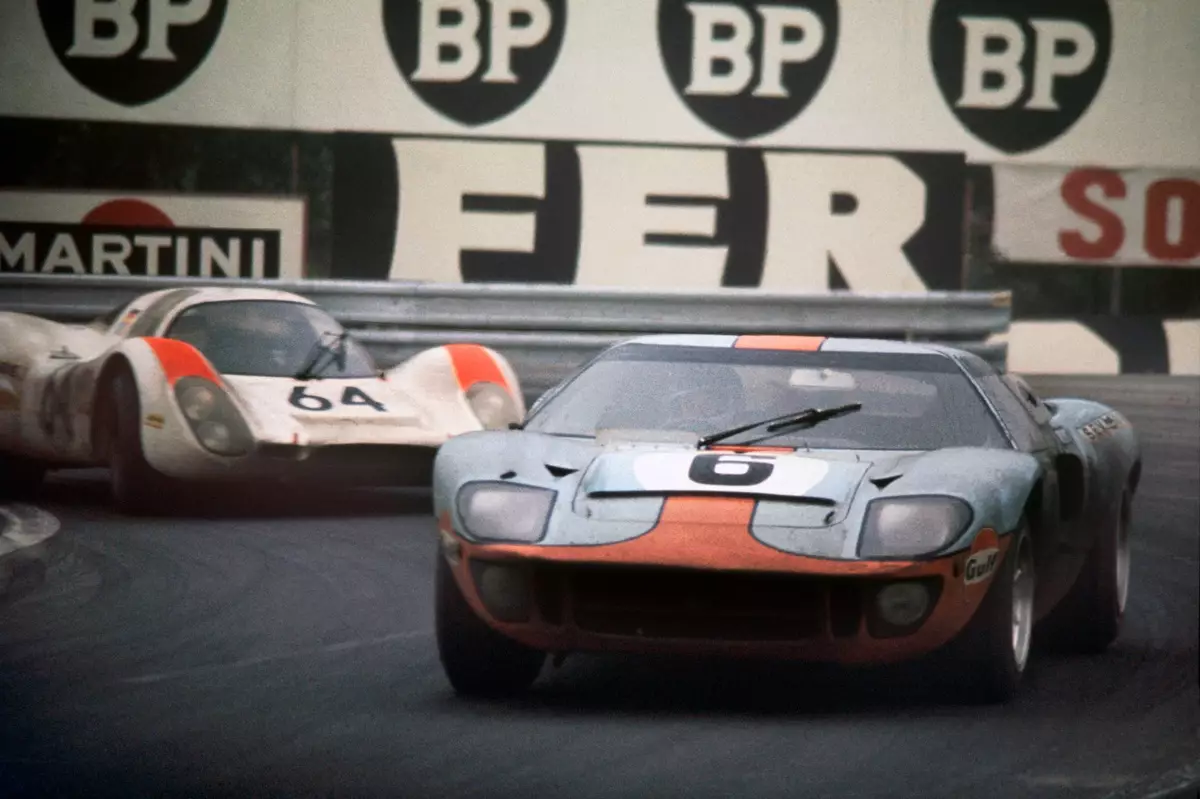In a remarkable announcement that echoes the echoes of its storied past, Ford Motor Company is set to make a triumphant return to the prestigious Le Mans 24 Hours. The automotive giant has confirmed its entry into the World Endurance Championship (WEC) with an LMDh prototype scheduled for competition in 2027. This initiative is not just a nostalgic nod to its historical feats; it represents a committed strategy to reclaim its former glory against fierce global competitors.
Ford’s upcoming foray into the endurance racing arena marks a significant chapter in the company’s motorsport history. With a lineage steeped in racing triumphs, notably between 1966 and 1969, Ford dominated Le Mans with iconic models such as the MkII, MkIV, and the GT40. These victories are not simply historical footnotes; they solidified Ford’s reputation as a formidable competitor, even defeating the revered Ferrari. Bill Ford, the executive chair of Ford Motor Company, underscored the significance of this venture during a recent motorsport launch event in Charlotte, North Carolina.
His remarks reflect a poignant connection to the past: “There is no track or race that means more to our history than Le Mans.” With this statement, Ford reaffirms its commitment to not only participate but to vie for victory at the highest level of endurance racing. The announcement comes as a timely reminder of Ford’s resilience and its ability to adapt to changing competitive landscapes.
Ford’s LMDh project is poised to augment its existing representation in the WEC, where it currently competes in the LMGT3 category with Mustang GT3s. The shift to the Hypercar class signifies an ambitious focus on high-performance engineering and competition, showcasing Ford’s intention to escalate its presence in elite motorsports. As Ford prepares to re-enter this prestigious series, it will also coincide with its return to Formula 1 alongside Red Bull Racing, representing an unprecedented presence in four FIA world championships by 2027.
This dual strategy not only diversifies Ford’s motorsport engagements but also consolidates its brand identity as a serious player in various racing formats. With a renewed focus on compact and fuel-efficient technologies underpinned by electric mobility, Ford seems poised to leverage its engineering prowess in pursuits that resonate with contemporary motorsport philosophies.
While details about the specific vehicle and technology Ford will deploy remain sparse, the strategic decision to adopt the LMDh platform over the Le Mans Hypercar suggests a calculated choice aimed at maximizing performance and competitive edge. Ford Performance, the company’s motorsport division, will spearhead this full-factory effort, a move reminiscent of its early years where factory backing was pivotal to success in competitive racing.
Interestingly, there has been no official mention of participation in the IMSA SportsCar Championship, despite broader contextual implications that Ford may align its LMDh entry with the GTP class. Such a comprehensive approach illustrates the complexity of modern motorsport strategies, where multi-series engagement enables manufacturers to maximize visibility and testing opportunities across varying conditions and regulations.
Ford’s rich racing history is peppered with notable attempts at outright victories, particularly in the North American circuit. The company’s prowess was notable in the IMSA GT Championship during its GTP era, and while it has shifted its focus to factory-backed efforts in recent years, its legacy continues to shape its current ambitions. The evolution into the world of prototype racing aligns with a renewed emphasis on engineering excellence and innovative design—factors that will be crucial in the highly competitive environment of the WEC.
As Ford prepares for this monumental return to Le Mans and the WEC, it must navigate a landscape filled with formidable rivals and evolving technological standards. The company’s commitment not just to compete but to win speaks volumes about its aspirations and understanding of the motorsport domain.
In essence, Ford’s return to the WEC encapsulates a blend of heritage and innovation, galvanizing motorsport enthusiasts around the globe. It serves as a powerful reminder that while the landscape of racing continues to evolve, the core beliefs of determination, competition, and excellence remain steadfast at Ford. As fans eagerly anticipate this new chapter, only time will tell if the Blue Oval will once again rise victorious at Le Mans.


Leave a Reply